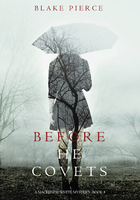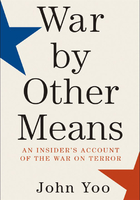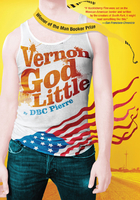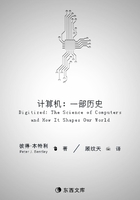INTRODUCTION
A speech made by Harold Pinter in Hamburg, West Germany, on being awarded the 1970 German Shakespeare Prize.
When I was informed that I was to be given this award my reaction was to be startled, even bewildered, while at the same time to feel deeply gratified by this honour. I remain honoured and slightly bewildered, but also frightened. What frightens me is that I have been asked to speak to you today. If I find writing difficult I find giving a public address doubly so.
Once, many years ago, I found myself engaged uneasily in a public discussion on the theatre. Someone asked me what my work was 'about'. I replied with no thought at all and merely to frustrate this line of enquiry: 'The weasel under the cocktail cabinet.' That was a great mistake. Over the years I have seen that remark quoted in a number of learned columns. It has now seemingly acquired a profound significance, and is seen to be a highly relevant and meaningful observation about my own work. But for me the remark meant precisely nothing. Such are the dangers of speaking in public.
In what way can one talk about one's work? I'm a writer, not a critic. When I use the word work I mean work. I regard myself as nothing more than a working man.
I am moved by the fact that the selection committee for the Shakespeare Prize has judged my work, in the context of this award, as worthy of it, but it's impossible for me to understand the reasons that led them to their decision. I'm at the other end of the telescope. The language used, the opinions given, the approvals and objections engendered by one's work happen in a sense outside one's actual experience of it, since the core of that experience consists in writing the stuff. I have a particular relationship with the words I put down on paper and the characters which emerge from them which no one else can share with me. And perhaps that's why I remain bewildered by praise and really quite indifferent to insult. Praise and insult refer to someone called Pinter. I don't know the man they're talking about. I know the plays, but in a totally different way, in a quite private way.
If I am to talk at all I prefer to talk practically about practical matters, but that's no more than a pious hope, since one invariably slips into theorizing, almost without noticing it. And I distrust theory. In whatever capacity I have worked in the theatre, and apart from writing, I have done quite a bit of acting and a certain amount of directing for the stage, I have found that theory, as such, has never been helpful; either to myself, or, I have noticed, to few of my colleagues. The best sort of collaborative working relationship in the theatre, in my view, consists in a kind of stumbling erratic shorthand, through which facts are lost, collided with, fumbled, found again. One excellent director I know has never been known to complete a sentence. He has such instinctive surety and almost subliminal powers of communication that the actors respond to his words before he has said them.
I don't want to imply that I am counselling lack of intelligence as a working aid. On the contrary, I am referring to an intelligence brought to bear on practical and relevant matters, on matters which are active and alive and specific, an intelligence working with others to find the legitimate and therefore compulsory facts and make them concrete for us on the stage. A rehearsal period which consists of philosophical discourse or political treatise does not get the curtain up at eight o'clock.
I have referred to facts, by which I mean theatrical facts. It is true to say that theatrical facts do not easily disclose their secrets, and it is very easy, when they prove stubborn, to distort them, to make them into something else, or to pretend they never existed. This happens more often in the theatre than we care to recognize and is proof either of incompetence or fundamental contempt for the work in hand.
I believe myself that when a writer looks at the blank of the word he has not yet written, or when actors and directors arrive at a given moment on stage, there is only one proper thing that can take place at that moment, and that that thing, that gesture, that word on the page, must alone be found, and once found, scrupulously protected. I think I am talking about necessary shape, both as regards a play and its production.
If there is, as I believe, a necessary, an obligatory shape which a play demands of its writer, then I have never been able to achieve it myself. I have always finished the last draft of a play with a mixture of feelings: relief, disbelief, exhilaration, and a certainty that if I could only wring the play's neck once more it might yield once more to me, that I could get it better, that I could get the better of it, perhaps. But that's impossible. You create the word and in a certain way the word, in finding its own life, stares you out, is obdurate, and more often than not defeats you. You create the characters and they prove to be very tough. They observe you, their writer, warily. It may sound absurd, but I believe I am speaking the truth when I say that I have suffered two kinds of pain through my characters. I have witnessed their pain when I am in the act of distorting them, of falsifying them, and I have witnessed their contempt. I have suffered pain when I have been unable to get to the quick of them, when they wilfully elude me, when they withdraw into the shadows. And there's a third and rarer pain. That is when the right word, or the right act jolts them or stills them into their proper life. When that happens the pain is worth having. When that happens I am ready to take them into the nearest bar and buy drinks all round. And I hope they would forgive me my trespasses against them and do the same for me. But there is no question that quite a conflict takes place between the writer and his characters and on the whole I would say the characters are the winners. And that's as it should be, I think. Where a writer sets out a blueprint for his characters, and keeps them rigidly to it, where they do not at any time upset his applecart, where he has mastered them, he has also killed them, or rather terminated their birth, and he has a dead play on his hands.
Sometimes, the director says to me in rehearsal; 'Why does she say this?' I reply: 'Wait a minute, let me look at the text.' I do so, and perhaps I say: 'Doesn't she say this because he said that, two pages ago?' Or I say: 'Because that's what she feels.' Or: 'Because she feels something else, and therefore says that.' Or: 'I haven't the faintest idea. But somehow we have to find out.' Sometimes I learn quite a lot from rehearsals.
I have been very fortunate, in my life, in the people I've worked with, and my association with Peter Hall and the Royal Shakespeare Company has, particularly, been greatly satisfying. Peter Hall and I, working together, have found that the image must be pursued with the greatest vigilance, calmly, and once found, must be sharpened, graded, accurately focused and maintained, and that the key word is economy, economy of movement and gesture, of emotion and its expression, both the internal and the external in specific and exact relation to each other, so that there is no wastage and no mess. These are hardly revolutionary conclusions, but I hope no less worthy of restatement for that.
I may appear to be laying too heavy an emphasis on method and technique as opposed to content, but this is not in fact the case. I am not suggesting that the disciplines to which I have been referring be imposed upon the action in terms of a device, or as a formal convenience. What is made evident before us on the stage can clearly only be made fully evident where the content of the scene has been defined. But I do not understand this definition as one arrived at through the intellect, but a definition made by the actors, using quite a different system. In other words, if I now bring various criteria to bear upon a production, these are not intellectual concepts but facts forged through experience of active participation with good actors and, I hope, a living text.
What am I writing about? Not the weasel under the cocktail cabinet.
I am not concerned with making general statements. I am not interested in theatre used simply as a means of self-expression on the part of the people engaged in it. I find in so much group theatre, under the sweat and assault and noise, nothing but valueless generalizations, naive and quite unfruitful.
I can sum up none of my plays. I can describe none of them, except to say: That is what happened. That is what they said. That is what they did.
I am aware, sometimes, of an insistence in my mind. Images, characters, insisting upon being written. You can pour a drink, make a telephone call or run round the park, and sometimes succeed in suffocating them. You know they're going to make your life hell. But at other times they're unavoidable and you're compelled to try to do them some kind of justice. And while it may be hell, it's certainly for me the best kind of hell to be in.
However, I find it ironic that I have come here to receive this distinguished award as a writer, and that at the moment I am writing nothing and can write nothing. I don't know why. It's a very bad feeling, I know that, but I must say I want more than anything else to fill up a blank page again, and to feel that strange thing happen, birth through fingertips. When you can't write you feel you've been banished from yourself.















